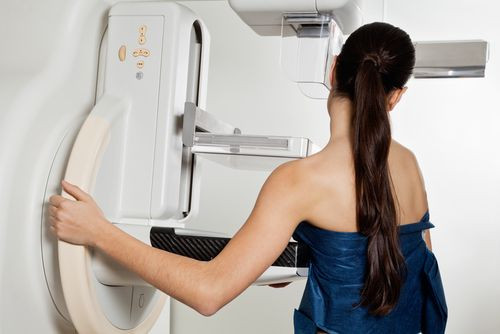False-Positive Mammograms Don't Discourage Women From Future Breast Cancer Screenings

False-positive mammograms are common enough in breast cancer screening programs, leading doctors to wonder: Do bogus results of a possible tumor cause women to avoid future screening tests? Now, a team of researchers from Dartmouth have discovered that a false-positive mammogram may cause a little temporary anxiety, but it does not negatively impact a woman's willingness to undergo future breast cancer screening. "Our report can help those counseling women about breast cancer screening, and will also be useful to those developing mammography screening guidelines," said principal author Dr. Anna N. A. Tosteson, professor of medicine.
Mammograms & Women
Most women detest mammograms. Similar to getting your picture taken in grade school, the bored technician (who happens to be wearing clothes while you are naked from the waist up) first positions you in some strangely awkward pose. Next, she (painfully) vice-grips your breast in the monstrous (and cold) machine, and then she tells you to hold your breath as she is leaving the room in order to shoot X-rays. It's hard to believe the medical establishment can't come up with something less excruciating than this. Meanwhile, according to the researchers of the current study, anywhere from 40 to 60 percent of all women who undergo routine mammograms during a 10-year period will experience a false-positive mammogram. Whenever a woman is given a positive result, she then undergoes additional testing — sometimes even a biopsy — to confirm the presence (or absence) of cancer. For those women who experience a false-positive, the increased anxiety, pain, and bother of additional tests might negatively affect her quality of life, many a doctor has suspected. Does it also encourage her to avoid future mammograms?
Wanting to measure the specific effects of false-positive mammograms, the Dartmouth team decided to focus on personal anxiety, health utility, and attitudes toward future screening. They used the Digital Mammographic Imaging Screening Trial (DMIST), a quality-of-life telephone survey performed shortly after screening and one year later at 22 sites. The DMIST survey included participants with both positive and negative mammograms. To gauge women’s emotional experience, they used the six-question short form of the Spielberger State-Trait Anxiety Inventory state scale (STAI-6) and the EuroQol EQ-5D instrument. They added questions to determine women’s attitudes toward future screening, and they also queried women about their willingness to travel (and stay overnight) in order to undergo a hypothetical new type of mammography that would identify as many cancers with half the false-positive results.
What did the researchers discover? Anxiety was significantly higher for women with false-positive mammograms, but there were no significant differences between groups after one year. A false positive actually increased women's intention to use breast cancer screening in the future — 25.7 percent of the false positive women said they intended to go for future screening versus 14.2 percent of women in the negative group. (Future screening intention was also significantly increased among younger women and those in poorer health.) Oddly, a false positive did not increase how much women preferred the new mammogram with fewer false positives.
Overall, the study “gave us evidence that a false-positive mammogram experience has a limited impact on women's overall well-being," Tosteson concluded. Maybe it's time scientists worked on figuring out a new screening test for breast cancer all together.
Source: Tosteson ANA, Fryback DG, HammondCS, Hanna LG, Grove MR, Brown M, et al. Consequences of False-Positive Screening Mammograms. JAMA Internal Medicine. 2014.
Published by Medicaldaily.com



























